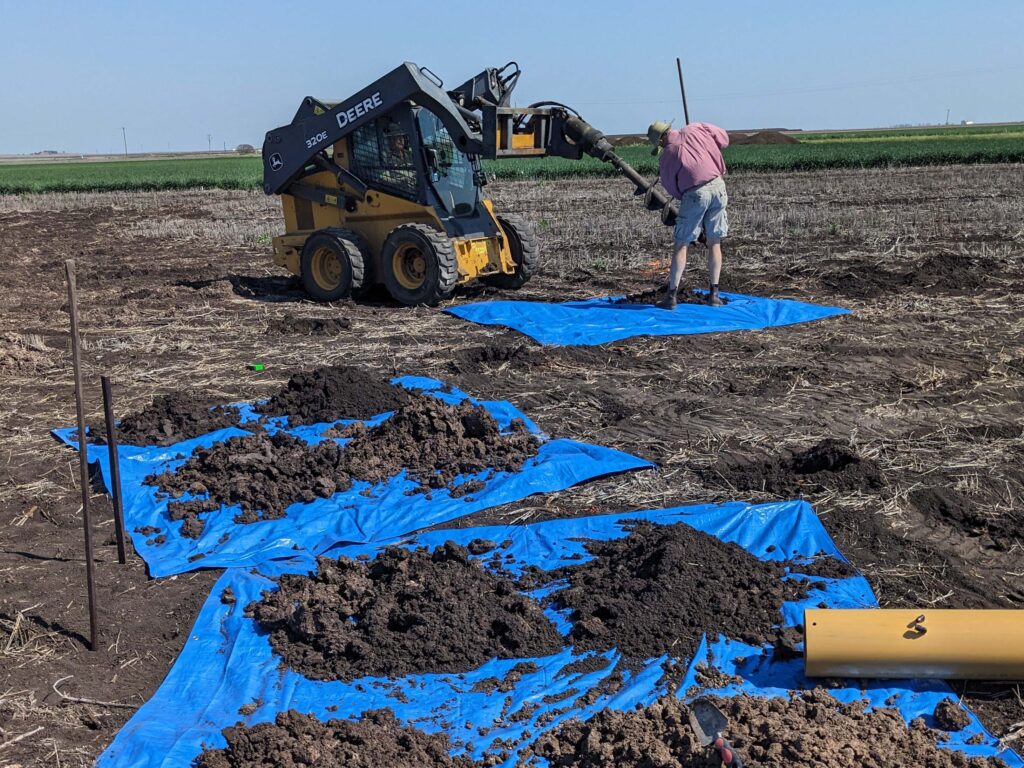


The project, led by the University of South Australia (UniSA) and James Cook University (JCU) and supported by the TNQ Drought Hub, investigates enhanced rock weathering as a natural climate solution.
Professor Paul Nelson is a soil scientist at JCU. He said Australia’s soils are generally highly weathered and infertile, which constrains crop production and carbon storage.
“Our best soils, which are quite scarce, are developed on basalt, so our project is taking crushed basalt – a by-product of gravel manufacture – and applying it to soil. This is a way of making poor soils more like those good soils,” said Dr Nelson.
He said both rice and cotton industries are known for their water-efficient practices and innovative crop varieties, making them ideal candidates for this pioneering research.

The technique is already being trialled on avocado and banana farms in Far North Queensland. This week, planting was completed at a new trial site on a cotton farm in the Darling Downs, South East Queensland and is now being extended to a rice farm in Jerilderie, New South Wales..
“We’re examining soil health and crop yields in rice and cotton, while also quantifying the amount of carbon permanently captured as the basalt breaks down,” said Dr Sarkar.
Professor Nelson emphasised the importance of long-term trials.
“Running trials over multiple crop cycle, up to three years, gives us the best chance to understand the biological and chemical processes at play and the long-term impact on soil and carbon sequestration,” he said.
The project is supported by the Australian Government through funding from the Climate-Smart Agriculture Program under the Natural Heritage Trust. Seven trial sites are being established across Australia, with initial focus on avocado, banana, rice, and cotton.
“We’ve selected crop industries that are already embracing innovation and sustainable practices,” said Professor Nelson. “Working with our project partner Carbonaught and basalt suppliers, we’re ensuring trials are conducted in regions where crushed rock is readily available, making future adoption by farmers economically viable.”
This research marks a significant step toward scalable, nature-based solutions for climate resilience and agricultural sustainability.
For more information: https://enhancedrockweathering.org.au/
Contact:
Dr Binoy Sarkar (Adelaide) M:0433 801 054
Professor Paul Nelson (Cairns) M: 0400 437 554